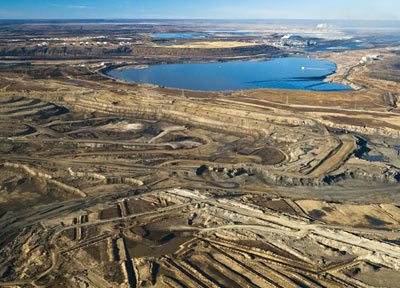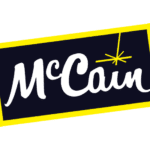Surviving the Land Squeeze
Western Canadian growers facing ever-mounting costs are questioning whether potato farming can be sustainable long term—or if the next generation will be forced to abandon spuds altogether.
When Gord Visser of Edmonton-based Norbest Farms decided to give away 100,000 pounds of potatoes in 2009, “citizens from the city flocked,” he says. “It was like a religious thing—they were connecting with the land.”
The reason behind Visser’s generosity was clearly communicated at the time—he wanted to highlight the problem of high-quality agricultural land being literally and figuratively paved over by urban sprawl and government indifference. But three years later, Visser hasn’t seen much progress.
“It breaks my heart to see the really good land taken out of production and government not recognizing the value of that exceptional land,” he says. “The environment in Alberta is important, the wetlands are important, but [when you] understand the living organism of soil, which is as alive as a rainforest … when non-agricultural people ultimately make decisions on land use, the agricultural potential is not part of the equation, and that’s very frustrating when you’re someone who’s nurtured the land for a long time.”
In order to be sustainable, says Visser, growers must first be profitable—and this is getting harder, as the oil boom in Alberta has caused urban sprawl along the fertile North Saskatchewan River Valley, swallowing up the richest land and driving up the price of remaining acres. Land that once cost $2,000 per acre now costs anywhere from $10,000 to $20,000 per acre. When you do the math, Visser says, the results are not in growers’ favour.
The oil boom in Alberta has caused urban sprawl along the fertile North Saskatchewan River Valley, swallowing up the richest land.
Land Squeeze
The problem only escalates when you travel west. In British Columbia, where viable land is squeezed tight by the mountains, potato growers have increasingly found themselves in competition with profitable fruit crops, particularly blueberries. Ten to 15 years ago, says Tim Guichon, who grows tablestock potatoes in the lower mainland of British Columbia, the starting price per acre was $25,000. Since then prices have skyrocketed.
“There’s a huge land squeeze out here,” says Guichon. “It’s driven land prices from $25,000 an acre to probably $50,000 to $60,000 an acre for larger parcels over 40 acres. A smaller parcel under 20 acres can cost up to two million dollars.”
Since B.C. potato growers are in the Agricultural Land Reserve zone, they don’t have to worry that urban sprawl will edge them out, but the protected land is that much more valuable.
“I tell people what land costs out here and they ask me, ‘Why do you farm?’ It doesn’t make sense to farm any crops if land costs that much,” Guichon says.
If a business is to be profitable and sustainable long term, Guichon believes it must expand over time. In British Columbia’s Fraser Valley, expansion is practically impossible due to the high land costs.
Sprouting New Growers?
Both Visser and Guichon question the long-term sustainability of potato production in Western Canada within the current system. If land prices continue to increase, with the best land being used for non-agricultural purposes, the next crop of growers may not be able to afford to grow potatoes at all.
“Will the younger generation want to do this?” asks Guichon. “You know what your costs are and what your income is going to be. If a good operator can’t buy land off his operation’s income it’s not sustainable.”
Visser echoes this sentiment. “[The high cost of land], along with the fact that our young people aren’t wanting to farm, and the average age of farmers is over 55 years old, and our governments are not helping to save the profitable land … as a farmer it’s discouraging.”
The solution comes down to increasing market demand for potatoes and continuing to raise awareness, before potato growers become an endangered species in Western Canada.
Julienne Isaacs












